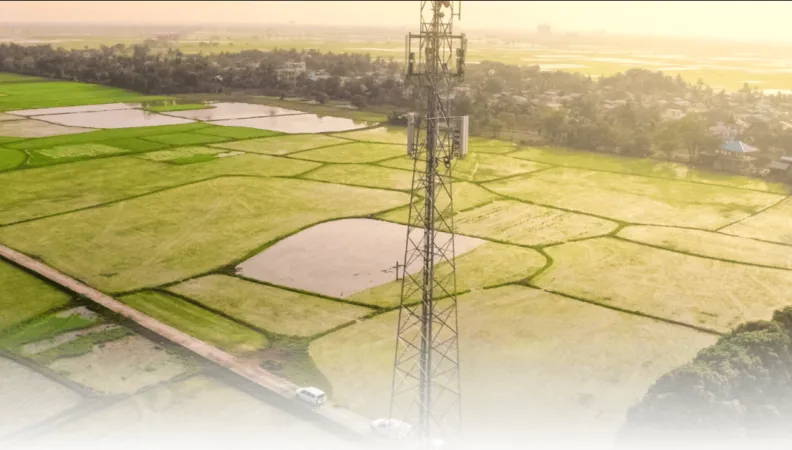Share the page
Improving energy efficiency in telecom towers in Africa to develop access to digital services
Project


-
Signature date
-
-
Location
-
Burkina Faso, Cameroon, Côte d'Ivoire, Niger, Multi-country Africa
-
Financing tool
-
Financing amount (Euro)
-
16000000
-
Financing details
-
EUR 16m loan
-
Customer
-
AktivCo Burkina Faso SASU / AktivCo Cameroun SAS / AktivCo Cote d¿Ivoire SAS / AktivCo Niger SAS
-
Type of customer
-
Company
-
Country of headquarters
-
Burkina Faso
-
Project number
-
PZZ1538
-
Environmental and social ranking
-
B+
-
Climate co-benefits
-
Project with climate co-benefits
This information is given at the time of signature, without prejudice to any developments in the operation/project.
Access to digital services and good mobile coverage require a reliable electricity supply for telecommunication networks. The project aims to improve energy efficiency in telecom towers in five Sub-Saharan African countries.
Client presentation
AktivCo, a subsidiary of Camusat Group, was set up in 2015. It supports telecom operators that want to outsource the energy supply of their telecom towers. This innovative segment is called T-ESCO (Telecom - Energy Service Company) and allows the owner of a telecom tower to subcontract the site’s electricity supply to a specialized third party responsible for deploying, financing and operating the electricity assets under a long-term contract.
Project description
Proparco has allocated a EUR 16m loan to support AktivCo for four projects that aim to hybridize telecom towers in Burkina Faso, Cameroon, Côte d'Ivoire and Niger. They will improve the energy efficiency of these services and increase the reliability of the telecommunication network.
Project impact
The project should:
- Install about 870 new off-grid electricity supply sites. The installation of hybrid electricity systems reduces the dependence of telecommunication services on fossil-fuel based generators or unreliable grids by using renewable energies. The project should contribute to reducing emissions by 22.8 kt CO2 eq per year.
- Support some 3,000 indirect jobs over the next 5 years.
The project will thereby contribute to the achievement of SDG 7 (Affordable and clean energy), SDG 8 (Decent work and economic growth), SDG 9 (Industry, innovation and infrastructure), SDG 10 (Reduced inequalities) and SDG 13 (Climate action).


